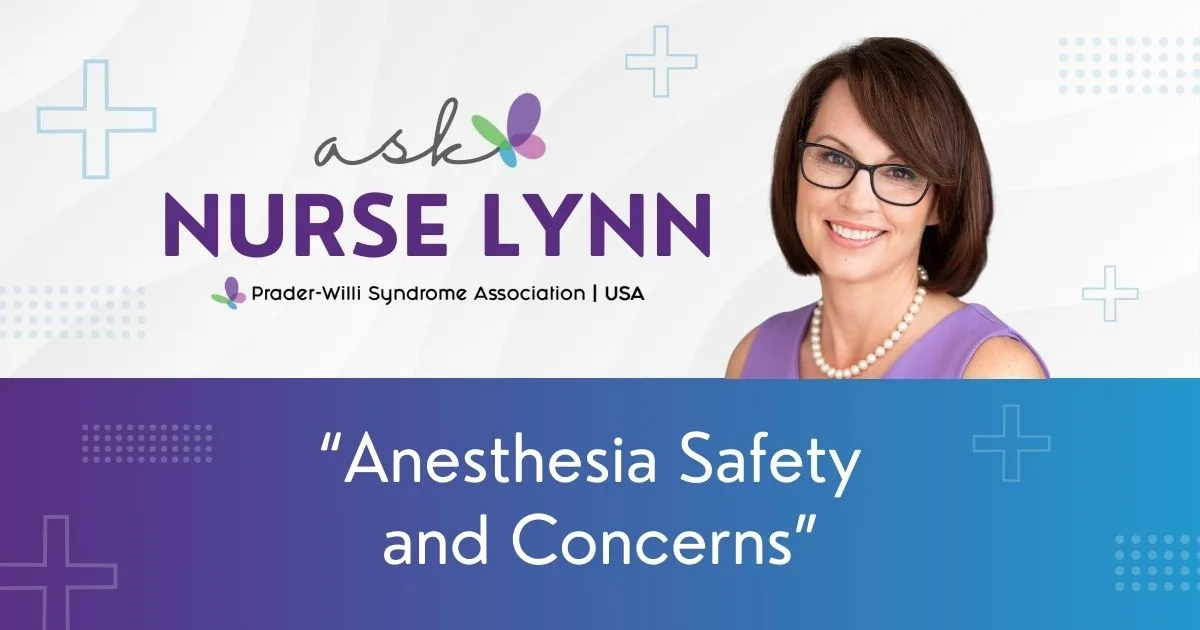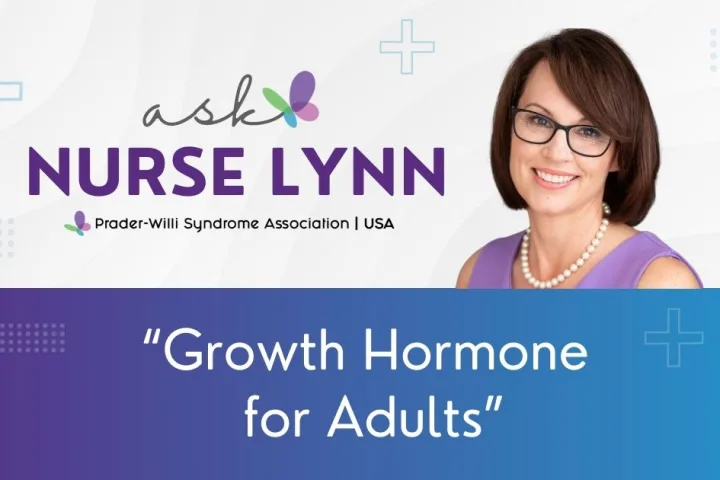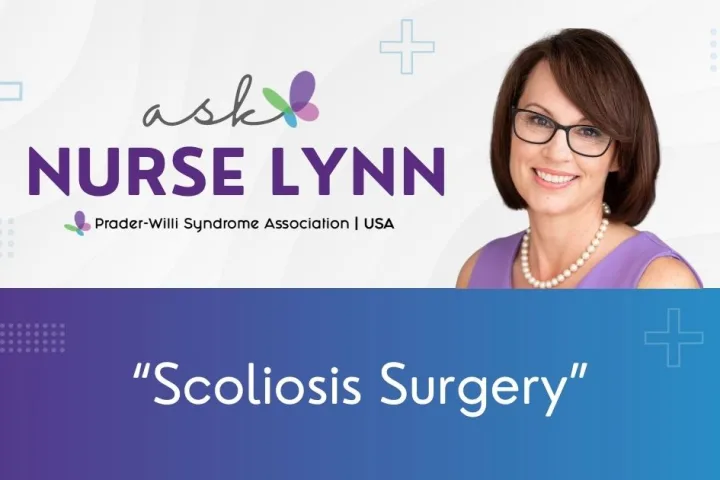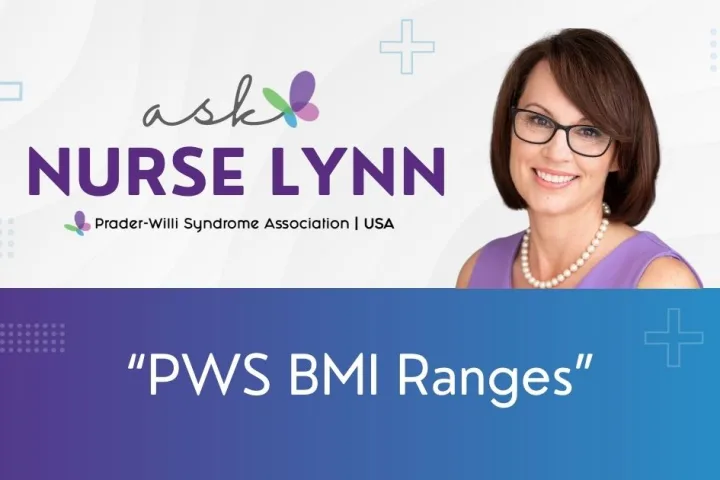Question:
Female, 18 months old, UPD subtype
My 18 month old daughter with PWS will be going in for tonsil shaving / possible adenoid removal in 2 weeks and this will be her first time under anesthesia for a procedure. The ENT performing the procedure is knowledgeable about PWS as he belongs to our PWS Clinic at our local hospital. However, I have no idea who the anesthesiologist will be and if they are at all familiar with PWS and challenges presented when anesthesia is required. Outside of handing this provider the Medical Guide, what should I say to them / make sure they understand prior to administering anesthesia for this procedure?
Nurse Lynn’s Response:
It’s important that the anesthesiologist understands that individuals with PWS have several anesthesia-related risks that require special attention. Respiratory complications are a concern, including central and obstructive sleep apnea, hypoventilation, and a reduced respiratory drive, all of which may not be apparent during a routine exam. Because of low muscle tone, individuals with PWS tend to be more sensitive to sedatives, opioids, and muscle relaxants, which can prolong recovery and increase the risk of respiratory suppression. Post-operative monitoring should include not only oxygen saturation but also capnography (CO₂ monitoring), as oxygen levels may appear normal even when ventilation is compromised. In addition, children with PWS may not express pain or distress in typical ways, so clinical signs should not be the sole indicators of discomfort or complications. Temperature regulation is also impaired in PWS, so careful monitoring for both hypothermia and hyperthermia during and after the procedure is essential. Anatomical features common in PWS, such as a high-arched palate and smaller oropharyngeal space, may complicate airway management and intubation. Communicating these considerations to the anesthesiologist ahead of time—along with providing written materials and a brief health summary will be helpful for the care team.
Resource:
I have linked a handout that will also be helpful below.
https://www.pwsausa.org/wp-content/uploads/2022/02/Anesthesia-and-PWS-Loker-2022-1.pdf
Do you have a non-emergency medical question for Nurse Lynn? Submit your question here:
Share this!





 Perry A. Zirkel has written more than 1,500 publications on various aspects of school law, with an emphasis on legal issues in special education. He writes a regular column for NAESP’s Principal magazine and NASP’s Communiqué newsletter, and he did so previously for Phi Delta Kappan and Teaching Exceptional Children.
Perry A. Zirkel has written more than 1,500 publications on various aspects of school law, with an emphasis on legal issues in special education. He writes a regular column for NAESP’s Principal magazine and NASP’s Communiqué newsletter, and he did so previously for Phi Delta Kappan and Teaching Exceptional Children. Jennifer Bolander has been serving as a Special Education Specialist for PWSA (USA) since October of 2015. She is a graduate of John Carroll University and lives in Ohio with her husband Brad and daughters Kate (17), and Sophia (13) who was born with PWS.
Jennifer Bolander has been serving as a Special Education Specialist for PWSA (USA) since October of 2015. She is a graduate of John Carroll University and lives in Ohio with her husband Brad and daughters Kate (17), and Sophia (13) who was born with PWS. Dr. Amy McTighe is the PWS Program Manager and Inpatient Teacher at the Center for Prader-Willi Syndrome at the Children’s Institute of Pittsburgh. She graduated from Duquesne University receiving her Bachelor’s and Master’s degree in Education with a focus on elementary education, special education, and language arts.
Dr. Amy McTighe is the PWS Program Manager and Inpatient Teacher at the Center for Prader-Willi Syndrome at the Children’s Institute of Pittsburgh. She graduated from Duquesne University receiving her Bachelor’s and Master’s degree in Education with a focus on elementary education, special education, and language arts. Evan has worked with the Prader-Willi Syndrome Association (USA) since 2007 primarily as a Crisis Intervention and Family Support Counselor. Evans works with parents and schools to foster strong collaborative relationships and appropriate educational environments for students with PWS.
Evan has worked with the Prader-Willi Syndrome Association (USA) since 2007 primarily as a Crisis Intervention and Family Support Counselor. Evans works with parents and schools to foster strong collaborative relationships and appropriate educational environments for students with PWS. Staci Zimmerman works for Prader-Willi Syndrome Association of Colorado as an Individualized Education Program (IEP) consultant. Staci collaborates with the PWS multi-disciplinary clinic at the Children’s Hospital in Denver supporting families and school districts around the United States with their child’s Individual Educational Plan.
Staci Zimmerman works for Prader-Willi Syndrome Association of Colorado as an Individualized Education Program (IEP) consultant. Staci collaborates with the PWS multi-disciplinary clinic at the Children’s Hospital in Denver supporting families and school districts around the United States with their child’s Individual Educational Plan. Founded in 2001, SDLC is a non-profit legal services organization dedicated to protecting and advancing the legal rights of people with disabilities throughout the South. It partners with the Southern Poverty Law Center, Protection and Advocacy (P&A) programs, Legal Services Corporations (LSC) and disability organizations on major, systemic disability rights issues involving the Individuals with Disabilities Education Act (IDEA), Americans with Disabilities Act (ADA), and the federal Medicaid Act. Recently in November 2014, Jim retired.
Founded in 2001, SDLC is a non-profit legal services organization dedicated to protecting and advancing the legal rights of people with disabilities throughout the South. It partners with the Southern Poverty Law Center, Protection and Advocacy (P&A) programs, Legal Services Corporations (LSC) and disability organizations on major, systemic disability rights issues involving the Individuals with Disabilities Education Act (IDEA), Americans with Disabilities Act (ADA), and the federal Medicaid Act. Recently in November 2014, Jim retired.